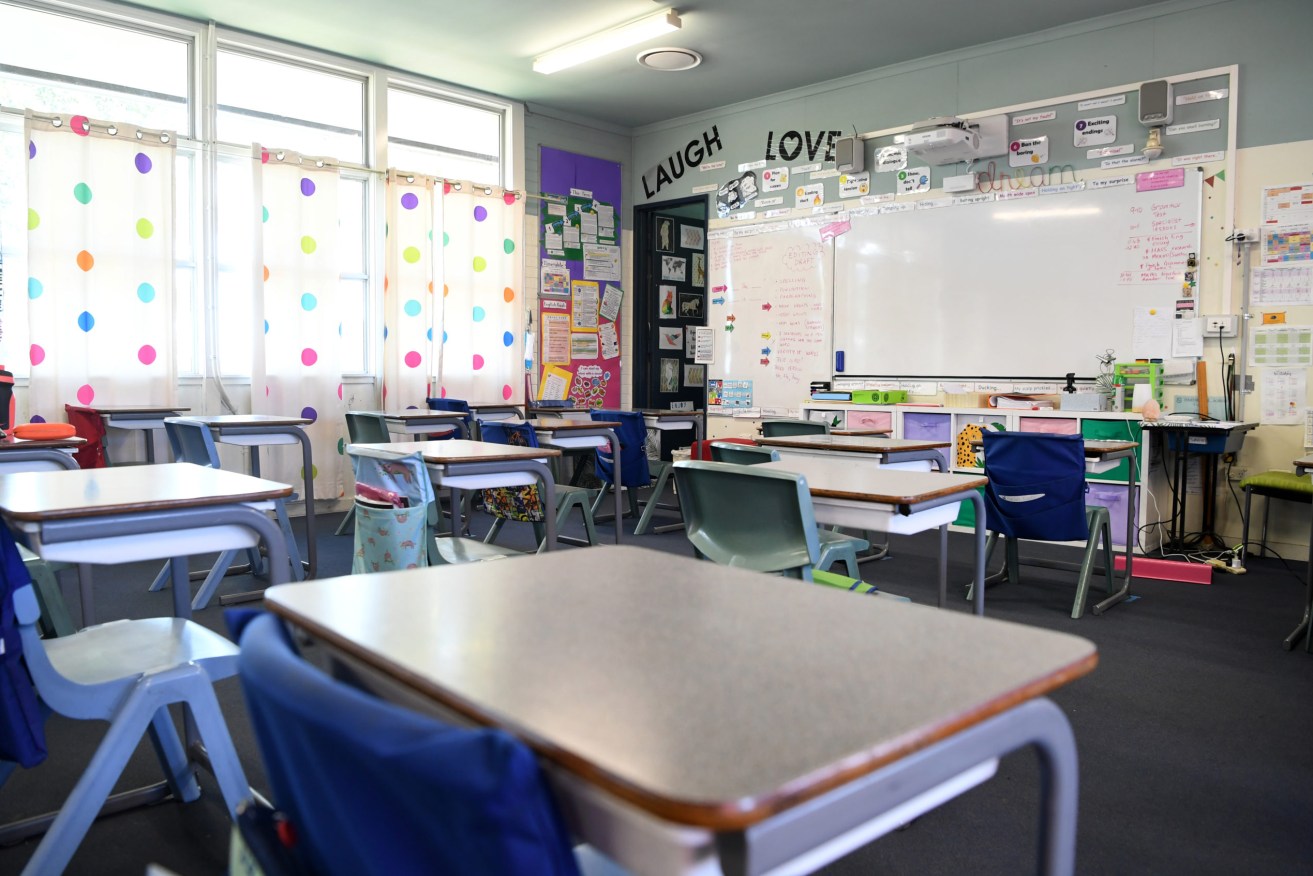Call for parliamentary inquiry into school ‘ghost children’
South Australia’s One Nation MLC is pushing for a parliamentary inquiry into the welfare of “ghost children” who are chronically absent from school, claiming there is a “lagging legacy of absenteeism” following the COVID-19 pandemic.

Photo: Dan Peled/AAP
According to Sarah Game, some public schools have reported consistent absentee levels of over 40 per cent, with teachers being placed at “physical risk” because they see no alternative other than to visit students’ houses to check on their welfare.
The One Nation MLC said after visiting schools, she was “alarmed and distressed” to hear principals raise concerns about a “lagging legacy of absenteeism in our state schools, exacerbated by the COVID-19 pandemic”.
“The number one issue raised when I visit disadvantaged schools is student absenteeism and the link to child welfare. I hear repeatedly about the stress this causes teachers,” Game said.
“I am alarmed about the welfare of these missing children.
“This is a child protection and welfare issue at its most fundamental level.”
But Education Minister Blair Boyer called Game’s comments “inaccurate” and said the absenteeism rate at schools is “nowhere near the 40 per cent that Sarah Game suggests”.
Department for Education data shows on average, around 2500 students in government schools are absent for more than 40 days each term.
As at term 1 2022, there were about 176,800 students enrolled in government schools.
The department says the attendance rate increased from 87 per cent in 2020 to 88.8 per cent in 2021. However, last year’s figure was still below the 90.2 per cent attendance rate recorded prior to the COVID pandemic in 2019.
Game said principals had told her that an “urgent” parliamentary inquiry into student absenteeism was needed.
She wants a parliamentary select committee to examine the causes of absenteeism, the effectiveness of current programs to encourage school attendance, and the identification of “ghost children who disappear from education, especially during the COVID-19 pandemic”.
The upper house politician also wants the committee to consider the mental and physical health of children who are persistently absent from school, and the impact social media might have on their wellbeing.
“There has never before been a thorough, investigative committee which looks at the causes and solutions of student absenteeism,” she told parliament last night.
“This must be investigated openly and with full cross-Departmental consultation.
“It cannot be addressed just by the Department of Education, Training and Skills alone. It requires a broader scope.”
The Education Department currently employs over 30 full-time school truancy officers who are tasked with reaching out to parents of chronically absent students to offer solutions to get them back into the classroom or learning online.
Boyer last week announced an extra three truancy officers with a social work background had started operating a truancy phone line to provide advice.
Aboriginal community-controlled organisation KWY will also employ another three officers to join a pilot program working with Aboriginal students who are absent from school.
Game said she welcomed the additional staff, but wanted a parliamentary inquiry to consider the effectiveness of the truancy phone line.
“There are over 600 state schools in South Australia,” she said.
“The government must be transparent as to how many full-time equivalent workers are dedicated to truancy. Not social work, not other areas of school support – just absenteeism.”
Boyer said the government recognised that school attendance was “incredibly important” as it played a role in improving the social and emotional wellbeing of students.
“I have made it very clear that if parents or guardians are actively seeking to stop their children from attending school, we will seek legal advice and proceed to prosecution if necessary,” he said.
“Addressing truancy is a priority of mine and this government has been doing a great deal of work – including hiring extra truancy officers with a social work background, introducing a pilot program working with Aboriginal students and focusing on education family conferences.
“While the figure is nowhere near the 40 per cent that Sarah Game suggests, there is a lot work going on to address this issue and to insinuate otherwise is disingenuous and lacks understanding of the complexities of what causes chronic absenteeism.”
The department states students were absent for shorter periods in 2021 compared to 2020.
It cites health issues or family complexities as potential reasons for absenteeism.




